John J. Gaynard's Blog, page 14
December 1, 2011
Hannah's World: being a young Turkish-Jewish girl in occupied WWII Paris
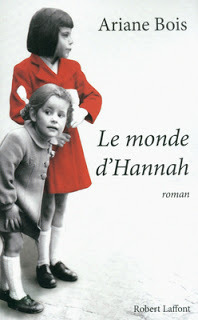
One of my favorite places in Paris is the Turkish area near the rue du Faubourg Saint-Denis, which, in the variety of its inhabitants, is a microcosm of present-day Turkey. Until a few days ago,when I began to see rave reviews of Ariane Bois's novel, Le monde d'Hannah--Hannah's World, appear in the weekly literary supplements, I hadn't realized how old the Jewish Turkish presence is in this part of the city, and the nearby 9th and 11th arrondissements, or that the Turkish authorities had evacuated some of their Jewish citizens from Paris towards the end of the war, although that story may not be as heart lifting as it first sounds.
Below are some extracts from what the publisher, Robert Laffont, has to say about Hannah's World:
"This is a story that takes
places in occupied Second World War France and it tells the story of an intense
friendship between two children, who will be separated by a secret that doesn't
bear thinking about.
Hannah, aged nine, lives in "Little Istanbul", a working class quarter
of the eleventh district, among its joyful and engaging Jewish-Spanish population.
One day in the street, she meets Suzon, who is 10 years old. In spite of
all that should oppose them, they strike up a sudden and passionate friendship
... But the time is October 1939. Hannah and her family are poor Jews from
Turkey.
Suzon's family is from the Creuse, in the French provinces, and well-off.
After her father volunteers to fight the Germans, Hannah discovers the black
market, what it is to be excluded, sees people expelled from their apartments, receives threats and the growing list of things she is forbidden to do.
She is soon forced to flee to a Catholic boarding school in Normandy, and, after the rounding up of the Jews in Paris, she manages to make it to Istanbul by train with her mother, thanks to
her father's Turkish nationality.
Upon their return to Paris
in 1945, a
new tragedy: Hannah's father and grandparents are gone ... The whole
neighborhood was destroyed. Hannah had hoped that her father had escaped
deportation, but both he and her grandparents have gone. Only the presence of
Suzon soothes despair.
The years go by ... Then Hannah discovers a secret so shocking, so brutal,
that it leads to a break with Suzon and her family ...Until May 68, when fate
brings Suzon and Hannah together again."
Ariane Bois, in addition to being a novelist, works as a reporter for Marie Claire. Her parents and grandparents were part of the Turkish evacuation of some of its Jewish citizens from Paris (those it had not "denaturalized") in 1944. They were among the lucky ones. According to Hans-Lukas Kieser's book, "Turkey beyond nationalism: towards post-nationalist identities, published by I. B. Tauris in December, 2006,
"Only in February, 1943, did the Turkish Embassy in Paris inform the German authorities that it recognized 631 (out of 3,000) Turkish Jews as Turkish citizens; it only asked for transit visas for 114 persons to evacuate them to Turkey... In order to prevent the feared "mass immigration" of Jews (who held Turkish citizenship), the Turkish government increasingly relied on depriving Jewish nationals (in occupied Europe) of their citizenship... Only in Spring, 1944, when the German defeat was obvious, and Turkey started to bet on the winning horse in its foreign relations, did international pressure enable enable several hundred Jews to be transported from France to Turkey, in six trains."
Le monde d'Hannah--Hannah's World, has been described by Le Figaro as "a small miracle of a book" in its handling of a forgotten part of French, Turkish and Jewish history," which Mohammed Aïssaoui describes as, "...the tragedy of the Turkish Jews who lived, in occupied France during World War II, in the "little Istanbul" part of the 11th arrondissement of Paris. Aïssaoui, in his Le Figaro review, said, "In the first part of the book, the novelist marvellously brings to life the existence of these humble people whose only desire was to get a better life for themselves, without being noticed. Everything is here: the decor, the smells, the words that were spoken, and Hannah's mother's never ending refrain, 'Don't shame us'. Then come the humiliations, the narrow escapes, the deaths of close family members. Ariane Bois's knowledge of the history of the period is impeccable, but it never weighs on the story."







Published on December 01, 2011 03:13
November 30, 2011
Review of The Imitation of Patsy Burke: the story of one man's descent into madness and violence
Here is how Coley Ann reviewed The Imitation of Patsy Burke, over on her knitting and reading blog Mental Scribbles.
The book starts off with Irish born sculptor Patsy Burke, waking up in his cheap Paris motel room, bloodied, with a broken arm and no memory of the night before.
We quickly meet Patsy's "friends," his inner voices, alter egos, or other personalities and join them as they assist Patsy in piecing together the events of the previous night. The journey through the bars of Paris also takes us through the memorable events of Patsy's past, mainly involving women, booze, and fights.
As we travel deeper into Patsy's mind and memories, we also come face to face with our own inner voices and urges. The book draws us into the darker side of human nature as is not for the easily offended, especially for those with sensitivities toward religion, language, and sex.
The bottom line:
This book quickly drew me in within the first few pages and kept me engrossed until the ending plot twists. It is not often that a book actually surprises me, but this one did. It is a dark and depressing story of one man's descent into madness and violence, but an engaging read.
Thank you, Coley Ann!
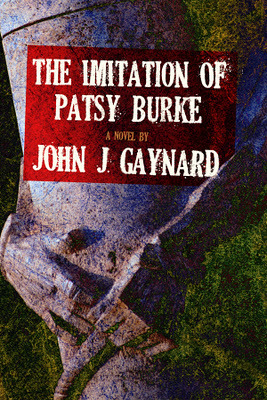
The other JT Lindroos cover I nearly used for The Imitation of Patsy Burke
I was fascinated to see that Coley Ann doesn't have the usual sort of visitor counter on her blog, but a "knitting miles" counter, which, last time I looked, showed that she has knitted 3.95 miles this year.
You can purchase the paper or Kindle versions of The Imitation of Patsy Burke on the American, French, German or United Kingdom Amazon sites or, if you wish to buy it in a United States Indie or local bookstore, you can find it here: THE IMITATION OF PATSY BURKE








The book starts off with Irish born sculptor Patsy Burke, waking up in his cheap Paris motel room, bloodied, with a broken arm and no memory of the night before.
We quickly meet Patsy's "friends," his inner voices, alter egos, or other personalities and join them as they assist Patsy in piecing together the events of the previous night. The journey through the bars of Paris also takes us through the memorable events of Patsy's past, mainly involving women, booze, and fights.
As we travel deeper into Patsy's mind and memories, we also come face to face with our own inner voices and urges. The book draws us into the darker side of human nature as is not for the easily offended, especially for those with sensitivities toward religion, language, and sex.
The bottom line:
This book quickly drew me in within the first few pages and kept me engrossed until the ending plot twists. It is not often that a book actually surprises me, but this one did. It is a dark and depressing story of one man's descent into madness and violence, but an engaging read.
Thank you, Coley Ann!

The other JT Lindroos cover I nearly used for The Imitation of Patsy Burke
I was fascinated to see that Coley Ann doesn't have the usual sort of visitor counter on her blog, but a "knitting miles" counter, which, last time I looked, showed that she has knitted 3.95 miles this year.
You can purchase the paper or Kindle versions of The Imitation of Patsy Burke on the American, French, German or United Kingdom Amazon sites or, if you wish to buy it in a United States Indie or local bookstore, you can find it here: THE IMITATION OF PATSY BURKE







Published on November 30, 2011 08:40
November 29, 2011
Rich'its Review of The Imitation of Patsy Burke: Raw, Depraved, Emotional
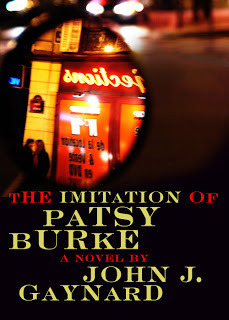
Reviews from professional reviewers are always good to have, but, what really pleases me is a review from an avid reader who has actually taken his or her own time to read it.
Here is what Rich'it wrote in his five-star review of the The Imitation of Patsy Burke on Amazon.com:
A thoroughly enjoyable romp by a sadistic author for the masochist reader. John J. Gaynard spares nothing as sacred -- nor rational for that matter -- as we trod though the life of Patsy Burke and his legion of voices. The Imitation of Patsy Burke is raw, depraved emotional responses revealing that basic animal instinct society has long sought to eradicate from the human psyche is, indeed, alive and well. Gaynard's work demonstrates just how faulty the result has been. Not a book for those seeking a fast pace, action thrilled adrenaline rush. No, this book holds a mirror up to humanity and says, "See! I told you so!" Still, it is well worth the read.
My novels, The Imitation of Patsy Burke and Another Life, can be purchased from Amazon.com, Amazon.co.uk, Amazon.fr and Amazon.de, in either print or electronic versions. You can find them by following any of the links below:
Amazon.com (Amazon in the United States)
Amazon.co.uk (Amazon in the U.K. and Ireland)
Amazon.fr (Amazon in France)
Amazon.de (Amazon in Germany)
Print and electronic versions can also be purchased from Barnes & Noble in the United States, by following this link: barnesandnoble.com
But Amazon and Barnes and Noble are not the only outlets. You can buy electronic versions of my books, suitable for many different readers, such as iPhone, Sony or Kobo from SMASHWORDS.







Published on November 29, 2011 02:21
November 27, 2011
French Ex-Cop Olivier Marchal, Writer and Director of Braquo, Stands Up for His Old Friend Michel Neyret
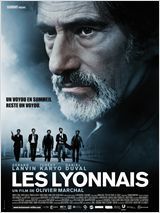
French ex-cop Olivier Marchal, writer of the TV series Braquo, which is getting nearly as much praise as The Wire, has turned to film directing, with great success. His film Les Lyonnais, which I will clumsily translate as "The Lyon Gangsters", has already started gathering the plaudits, before its official release date of November 30th. The lead actor in the film is Gérard Lanvin, and there is a strong supporting case that includes Tchéky Karyo.
But Marchal is also coming under fire, for standing up for his old friend Michel Neyret, the commissaire who was number two in the Lyon police hierarchy, until he was charged with offences arising from getting too close to the Franco-Tunisian Benichou gang that operates down on the Côte d'Azur. Neyret has been accused, I repeat the word 'accused', of selling information to known crooks, in exchange for luxurious holidays and fast cars, sometimes picking up as much as fifty thousand euros when he handed over interpol information on a notorious individual. How much of this is true will come out, in time. Neyret, and many other French cops, plead that that he was only using the time-honored method of throwing out a sardine to catch a shark.
Every policeman in France is lamenting Neyret's fall. For years he has been their hero, and he could do no wrong. Neyret, whom everybody describes as a good, "old fashioned" cop is accused of going over to the other side, during a three-year posting to Nice, a city in France that disgusted Graham Greene, in the 1980s, when the writer discovered the collusion between cops, criminals and politicians in the crime scene down there, especially when the collusion started affecting his own circle. Greene's exposure of the Nice scene, a long time before Neyret was ever posted to the city, can be found in his book: On the Riviera: A Morality Tale.
In today's Journal du Dimanche, this is what Olivier Marchal had to say about his friend, Michel Neyret, who was an adviser on his film.
"I take exception to the fact that the methods of a cop, who was lauded in the past for his crime detection record, are being condemned by the very people who owe their jobs to his record of success. It's true, that when I was a cop, we had crooked friends. We got up at the same time as them, and that wasn't the same time of day as people who work office hours. Neyret is a great guy who over-reached himself. You can't put him in the same category as the cops in Lille, those guys (who have been accused of) pimping for Dominique Strauss-Kahn, they're the ones who make me throw up. But when you think of Michel, and then you see the other guys who are walking around free today (you have to wonder what the hell is going on...)"







Published on November 27, 2011 03:47
November 24, 2011
I get interrogated by Declan Burke for Crime Always Pays
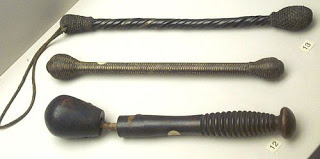
A selection of coshes and a bludgeon from the Bedford Museum
I have just had the honor of being invited by to do a Question & Answer session with Declan Burke, for the "Ya Wanna Do it Here, or Down the Station, Punk?" feature on his influential blog Crime Always Pays. Declan is the well-known Irish crime writer, among whose recent achievements figure the groundbreaking novel Absolute Zero Cool, which was shortlisted for the Crime Fiction section of the 2011 Irish Book Awards and Down These Green Streets, an anthology of 21st century Irish Crime Writing.
Below are a couple of excerpts from the interrogation, including a few lines about the novel I'm currently committing. If you want to read everything I blurted out, after a few well-directed blows from the rubber-hose, kindly go to Crime Always Pays.
"Worst / best thing about being a writer?
The worst thing, apart from French women writers, who've fallen out of love with you, making you a character in their books, is that it's easy to become isolated from the rest of humanity. To avoid that I get up very early, every morning in Paris and I spend a couple of hours doing a café crawl, meeting up with friends like taxi drivers, plumbers, illegal African immigrants working on the building sites, and transsexual night club bouncers or heterosexual hostesses, who clock off at six o'clock in the morning and who like to sit around and talk shop in the cafés for a couple of hours before they head home for bed. One of the transsexual bouncers used to run the newspaper shop in the European Commission building in Luxemburg and, s/he tells me, the stuff that went on there was weirder than any club in the whole of the European Union. Once the office workers come out, at about eight-thirty, I head back to my own work. One of my favorite songs is Jacques Dutronc's, "It's 5 a.m. Paris Awakes". It's about a young man walking down from Pigalle, as it used to be, after a night in the clubs. The best thing is raising your head after ten or eleven hours of work and realizing that you've been so captivated by what you're doing that you've lived life to the full. Then you can sit down to three or four hours of reading before you go contentedly to bed.
The pitch for your next book is …?
It's going to be about a testosterone-fuelled Irish Guard, Timothy O'Mahony, who first came to life in my first novel, ANOTHER LIFE. O'Mahony is the son of a French woman and an Irish father, from Charlestown. After a scandalous liaison with a Northern Irish woman politician, he was demoted from a senior position in Dublin and exiled to the Garda station in Bangor, Erris. He's now put in charge of investigating the murder of a young African girl, whose body washed up on the shoreline of County Mayo. The story will take O'Mahony into that part of French life in which presidential candidates, policemen, prostitutes and jaded middle-class political groupies engage in group sex, freemasonry, corruption and conversations about Ireland's refusal to extradite people strongly suspected of killing beautiful French women. Any resemblance to what is going on at the moment in Ireland, France, or what recently happened in New York, will be purely fortuitous. I'm still deciding to what extent O'Mahony will be allowed to participate in the group sex."







Published on November 24, 2011 05:50
November 22, 2011
Alexandra's Fashion Show in Vétheuil
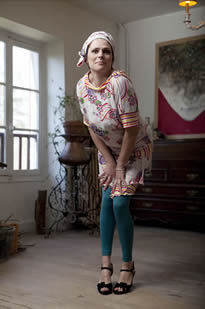
Vétheuil is a small French village best known for its painters. It was Monet's home for a couple of years, and he had some really hard times there before he moved to the more famous Giverny, a few miles away. It is also the beautiful place in France where the abstract expressionist painter, Joan Mitchell, lived out her days. There are still about ten living artists who live in and around the village, and a couple of writers, including yours truly.
However, the buzz in the village these days is about fashion. A few years ago, a young woman who lives there was asked politely who had designed what she was wearing. The question came from a couple of lady tourists who were passing through. When she told them that she designed and made her clothes herself, the ladies asked if she could also design and make some clothes for them.
That is how Alexandra Landais-Delattre got started in the fashion business, and she now has an atelier that takes up nearly one half of the village café. This makes for a great atmosphere, husbands come in for an apéritif and to chat happily away, with the local farmers or some of the very important people from Paris who have a second home in the village itself or in the area, while their wives share their opinions about the clothes on display, or are fitted by Alexandra. When they are told by their spouses that they will need to be accompanied to three or four fittings, most men welcome the opportunity.
Last Sunday, I had the great pleasure to be at Alexandra's latest fashion show, held in the Vétheuil village hall. And when I say pleasure, I mean it. Comparable events for me, were the first presentation of Peter Brooke's Carmen at Les Bouffes du Nord, or the first time I heard La Traviata. A large part of esthetic satisfaction comes from being taken in new directions. Knowing, from previous shows, that there was a risk of it becoming standing room only, I got there half an hour early with my wife, but there was already a crowd of about a hundred people waiting outside.
This is the seventh show Alexandra, her husband, Jacques, and Ingrid Dandleux, who was in large part responsible for staging the défilé de mode, have put on in the past five years and it represented a step change: a mise en scène around the concept of mobility and trains, with the models, young and middle-aged, all of whom are women from the village of Vétheuil, passing and repassing through an artfully reconstructed Gare de l'Est, as they waited for their own train, or to welcome a lover or friend. I am not much of an expert in clothes, but I know when I am at a good show. The show itself and its choice of music, which ranged from contemporary French songs to reggae, was a blast. When Alexandra and her colleagues thanked the people in the hall at the end of the show, the atmosphere of respect for what they had just seen and heard was palpable.
The best way get an idea of Alexandra's talent is to drop into the café in Vétheuil. However, that is not a viable option for about 95% of the planet, so I suggest you take a look some of the photographs on the slideshow at Alexandra Landais-Delattre's website. You can also befriend Alexandra on Facebook.
The quality of Alexandra's and Ingrid's fashion shows is second to none. Now the challenge is to get the word out on the web about what she is doing, and let fashion conscious people know that, when they visit Vétheuil or Giverny for the impressionists, they can also get a good idea of what is happening in 21st century French fashion.







Published on November 22, 2011 01:21
November 21, 2011
Review of Declan Burke's Absolute Zero Cool: a Russian doll of a novel
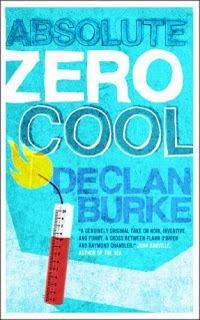
Apart from the fact that it is a challenging, pleasing, provocative, wise-cracking read, there are at least three more reasons Declan Burke's most recent novel, Absolute Zero Cool, should be made obligatory reading for every innocent young student wishing to dedicate his or her life to any form of art, and who takes on the loan necessary to enroll in an institute of higher education, whether it be for acting, painting, sculpting or "creative writing". I will come back to the three reasons, towards the end of this review.
Below are a few paragraphs describing what the novel is about, from the main character's point of view.
You are the half-finished, perhaps never-to-be-finished, creation of a struggling crime writer. Even he has put you to one side, and forgotten you, and the only people who may still be aware of your existence are his former literary agent and an employee of the Irish Arts Council. Apart from the fact that he has left you in Limbo, you don't like the way the author, a man with a strong resemblance to Declan Burke, has created you. In fact, many, many elements of his discarded manuscript displease you.
He has given you a name, sometimes abbreviated to its first initial, that would be more at home in a novel written in German, in Prague, at the beginning of the 20th century, or in a normal, classical Swedish crime novel by somebody like Henning Mankell. In the Irish crime writer's hands you have become a hospital porter, selling candy bars to your elderly charges, cleaning their vomit up after them, and committing the occasional act of euthanasia. If you could have your own way, you'd probably ask the writer's agent to propose the manuscript to somebody like Mankell, or Arnaldur Indridason, to polish up your character in a conventional, Scandinavian crime, while giving you an Irish first name, and making you more of a hero than has this author, in whose judgement you have no confidence, and from whose jaded hands you have fallen into oblivion. However, you are destined to be the creature of this Burke-like writer, and the only hope you have of getting some self-respect is by preying on him until you can get him to bend his will to your own idea of a satisfactory plot. To achieve your objective, you are willing to push him to that level of psychological distress at which he will betray his own family's security in order to satisfy your ego.
The author, who may not really be who he thinks he is, finally gets the long awaited retreat, financed by the Irish Arts Council, that will give him the peace and quiet to finish a novel that may, at long last, encounter some financial success. His wife, who has made incredible self-sacrifice so that her man can practise his craft, sends him away content in the knowledge that he now has the space in which to come up with the goods. You, however, Bill, wait for the right moment, at the retreat, and then you appear to him, screwing up any possibility of his finishing the new novel before he has come to terms with you. You make threats, you ask him to rename you, you tell him you are worthy of a more noble crime than topping old people in distresss. He tells you he doesn't have the time to take care of you.
You work out a deal with the crime writer. You propose to rewrite a large part of the manuscript yourself, saying that this will ease the burden he has to carry. He knows better. Your redrafting work should, in theory, free up his mind enough to let him do what he really needs to do at the retreat, but in fact, he already knows that you are the sort of attention-seeking parasite who doesn't give a fuck what happens to his new novel. Against his better instincts, and his wife's threat to rewrite the marriage contract, if he doesn't put his nose to the grindstone, the unfortunate writer, who is going to go broke if he does turn his attention back to you, and be seriously hassled if he doesn't, has to comment on your chapters about yourself and take on the role of an editor or literary agent.
You make every novice writer's mistake in the book. The author tries to point this out to you, but you won't listen. You introduce large chunks of indigestible prose, about the Greek goddess of the moon and Herostratus, to cite just one example, which nearly drown out the comic stuff you are good at: wise-cracking, smart-assing and diverting attention away from your own crimes by discussing the self-isolation of the Polynesians. You deliberately leave your manuscript lying around in places where your girlfriend can see what you have written about her. The realisation she may be in danger frightens her to the point she leaves you.
You weren't content with the original version of the story, but, in your own version, you commit acts nearly as heinous as euthanasia. You find an alibi for the time you need to spend hiding the bomb in the hospital by giving your unwitting ex-girlfriend a date rape drug, which will ensure that she accuses you of abusing her while you were up to something else. You pose, on the social networks, as a young girl barely out of her teens, so that you can entrap, and make an accomplice, out of the laptop-equipped pervert who thinks he's the one who's grooming you.
At a more psychotic level, you manipulate the writer who has written you, in any way you wish: you disappear for days when he needs to work you out of his system; you turn up when he least has time to cater to your whims. You play around with everything he holds dear, even going so far as to blowing up the hospital just as the writer's family needs it the most. In the end you decide to take Burke down with you. You are blown to virtual smithereens, but, back in the real world, he is the one who will have to do a minimum of five years inside for the crimes you forced him to write and carry through; the sentence will be longer if his plea of criminal insanity isn't taken into account.
So, why do I recommend that this rewarding, comic, yet harrowing, novel be given to students as a learning tool and a health warning?
Firstly, it shows the Matryoshka, or Russian nesting doll, aspect of writing a novel, or creating anything that risks becoming bigger than oneself. As a writer, you like to think you are the biggest doll in the room, but are you in fact nested inside what you have written? The writer of Absolute Zero Cool is a character in his own right and he has the novel of his own life--Who am I? Who amn't I?--to maintain on a satisfactory level. But he finds himself grappling with a cuckoo-like character, in what he thought to be the old nest of a discarded novel, who comes to life in unexpected ways, not only challenging his maker, but wishing to nest within the two of them another novel, containing another character and another plot. In the end, the cuckoo in the nest tries to turn his egg into a plot that will attempt to nest inside its bilious stomach the biggest doll of them all, the author. If you are still with me, now read on.
Secondly, it will be an indication to the most committed, but unwitting, students of how their craft will reinvent them, take them out of their comfort zones, and extract a personal cost for devoting their lives to high or low art, including the possibility of destroying their nearest and dearest in pursuit of the perfect piece of work. Picasso and Dylan Thomas are only two examples of great artists who were very imperfect human beings, and who made people, who loved them, suffer. How can you devote your life to becoming a great writer or actor, and still find the time or dedication to be an admirable family man? A type of schizophrenia ensues, in Absolute Zero Cool, in which the novelist begins to wonder if he has free will, or if his enthrallment with his creation, or compulsion to write a great novel, is bringing his life to the edge where the order he has been able to maintain up till now will finlly tip over into chaos. By following where his creation leads him, the writer may in fact destroy, or starve, himself, or those close to him. Knut Hamsun's Hunger comes to mind.
Thirdly, the novel will provide enough material to the teacher to keep a discussion going over the whole three years of the degree program. Derrida's techniques for deconstruction can easily be applied: the students will be able to see how the stuff Declan Burke didn't write is, in fact, the hidden architecture of what he did write. Jacques Lacan's famouse phrase, "If I can't think where I am, how can I be where I think?" can be used to illuminate Absolute Zero Cool's use and abuse of the subsidized writer's retreat. The students can, as their final assignment, be asked to rewrite the book from the point of any number of characters: the writer's agent or wife, Bill's girlfriend, the pedophile known as Yasmin, or the old man whose life would have been snuffed out by the hospital porter, if the porter hadn't challenged the fate Burke wanted to saddle him with. They will be able to see for themselves that Absolute Zero Cool contains more than enough material for a couple of thousand conventional novels.
My own rewriting of the plot would require ending the novel with the first chapter. As it takes the reader to its cathartic conclusion, he or she wonders who is writing whom and who in the hell is plotting or planting what: who's in charge, is it the author or is it his character or has the reader even become guilty for some of the shit that is happening? I suggest that, when you finish the book, turn back to the first two pages of chapter one, reread them, and you will find that any question you may have had about the ending finds its answer, except for one: if the well-dressed man at the end of the bed is neither a pimp nor a lawyer, does this mean that he is a literary agent, accosting the hapless author on his hospital bed to make him come up with a more commercial, noirish, ending?
In some of the reviews of Absolute Zero Cool, the novel has been compared to Flann O'Brien's oeuvre, and I have no quarrel with this, although it may be limiting Burke to too small a literary scene. People outside Ireland may well ask, "Who's Flann O'Brien?" To which I would reply that he was an Irish experimental writer who, in his lifetime, never got the rewards he deserved, for many reasons, but to really understand O'Brien's own accomplishments you would need to compare and contrast him with a few other European writers, who often plowed a long and lonely furrow before being acknowledged in death.
On the wider, European stage, Burke's very serious playfulness reminds me of the accomplishments of the Czech writer, Bohumil Hrabal, and the French writers Georges Perec, Marcel Aymé and Michel Houellebecq. Pirandello's play, "Six Characters in Search of an Author", is also a worthy benchmark, and I could easily imagine Absolute Zero Cool being adapted for the stage. Houellebecq's novels are very different to Burke's, but they share some of the nihilistic characteristics Burke displays in his cynical take on the middle-class routines and pretensions of the country we both come from.
In his first novel, Eightball Boogie, Burke demonstrated his mastery of the hard-bitten, wise-cracking noir novel and he has, so far, made his name in the framework of Irish crime fiction. With this novel, he has moved into a larger, perhaps more challenging, league. Where does Declan Burke go from here? Will he slip back into the genre of the crime novel, or will he pick up another gauntlet, and become Ireland's answer to Michel Houellebecq? Absolute Zero Cool shows that if he does decide to write the great tragi-comic Irish 21st century novel, it is a task for which he is well-equipped.







Published on November 21, 2011 05:14
November 14, 2011
Great Kirkus Review of the Imitation of Patsy Burke

"Booze, brawls, sex and schizophrenia—such is the artist's life in Paris, according to this raucous satire.
When Patsy Burke, a world-famous Irish sculptor living in France, wakes up in his hotel with his body torn and bloody and no recollection of how it got that way, he's not particularly surprised. A raging alcoholic given to beating up pimps in Paris dives, he's used to blackouts and drunk tanks. Unfortunately, his latest bender has left a dead man in its wake, and Patsy's attempt to piece together what he's been doing for the last few days triggers a reckoning with his past and his demons. Said demons take the form of bickering voices inside his head, including Caravaggio, a Nietzchean figure who eggs on Patsy's fistfights and womanizing; Goody Two-Shoes, a prim woman who castigates his atrocious treatment of friends and lovers; a wispy romantic named Forget Me Not; and a scary demiurge called the Chopper, whose insistent promptings to behead women with a meat cleaver are barely fended off by the remnants of Patsy's sanity. These clashing personae narrate Patsy's violent picaresque and roiling internal conflicts; he's bombastic, selfish, preening and cynical, yet steeped in Irish-Catholic guilt. (His downward spiral was touched off when he learned that a statue he made of Jesus being sodomized by two monks—meant as a protest against clerical abuses—is now presiding over orgies conducted by Vatican pedophiles.) Patsy's saga is plenty lurid—"You bit off his right ear and you spat it out"—yet the author's pristine prose keeps it under control. Despite the tale's almost Dantean excesses, Gaynard makes the tone ironic and droll—during an odyssey through the Parisian demimonde, Patsy finds himself discussing Marxist development economics with a glamorous prostitute—and registers delicate shadings of his antihero's psychic travails. The result is an entertaining, over-the-top farce that still draws readers in with pathos.
A rich, darkly comic send-up of the art world and the megalomaniacal souls that populate it."
You can find this review online at: http://www.kirkusreviews.com/book-reviews/john-j-gaynard/imitation-patsy-burke/#review
I received the review this morning and, in addition to the review posted by ColeyAnn on her blog Mental Scribbles and a couple of good reviews on Amazon.com, it really made my day.







Published on November 14, 2011 11:59
Great Kirkus Review of the Imitation of Patsy Burke

"Booze, brawls, sex and schizophrenia—such is the artist's life in Paris, according to this raucous satire.
When Patsy Burke, a world-famous Irish sculptor living in France, wakes up in his hotel with his body torn and bloody and no recollection of how it got that way, he's not particularly surprised. A raging alcoholic given to beating up pimps in Paris dives, he's used to blackouts and drunk tanks. Unfortunately, his latest bender has left a dead man in its wake, and Patsy's attempt to piece together what he's been doing for the last few days triggers a reckoning with his past and his demons. Said demons take the form of bickering voices inside his head, including Caravaggio, a Nietzchean figure who eggs on Patsy's fistfights and womanizing; Goody Two-Shoes, a prim woman who castigates his atrocious treatment of friends and lovers; a wispy romantic named Forget Me Not; and a scary demiurge called the Chopper, whose insistent promptings to behead women with a meat cleaver are barely fended off by the remnants of Patsy's sanity. These clashing personae narrate Patsy's violent picaresque and roiling internal conflicts; he's bombastic, selfish, preening and cynical, yet steeped in Irish-Catholic guilt. (His downward spiral was touched off when he learned that a statue he made of Jesus being sodomized by two monks—meant as a protest against clerical abuses—is now presiding over orgies conducted by Vatican pedophiles.) Patsy's saga is plenty lurid—"You bit off his right ear and you spat it out"—yet the author's pristine prose keeps it under control. Despite the tale's almost Dantean excesses, Gaynard makes the tone ironic and droll—during an odyssey through the Parisian demimonde, Patsy finds himself discussing Marxist development economics with a glamorous prostitute—and registers delicate shadings of his antihero's psychic travails. The result is an entertaining, over-the-top farce that still draws readers in with pathos.
A rich, darkly comic send-up of the art world and the megalomaniacal souls that populate it."
You can find this review online at: http://www.kirkusreviews.com/book-reviews/john-j-gaynard/imitation-patsy-burke/#review
I received the review this morning and, in addition to the review posted by ColeyAnn on her blog Mental Scribbles and a couple of good reviews on Amazon.com, it really made my day.
Published on November 14, 2011 11:59
November 13, 2011
My review of Hans Fallada's Wolf Among Wolves
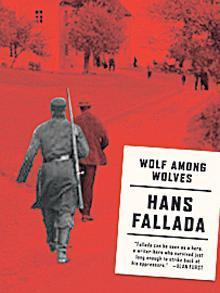
Germany 1923: with exponential inflation, ever-rising poverty in the cities, and the French occupation and bleeding dry of the Ruhr in the background, Fallada follows the fortunes of three ex-soldiers who had fought together in WWI but who now, like most of their countrymen, are struggling to make sense of the present state of chaos.
The soldiers move from hunger-, drink-, cocaine-, prostitution- and gambling-stricken Berlin to what they imagine will be a better life in the countryside, however their hopes are disappointed: around them, a downward spiral of recklessness, infatuation, envy and revenge takes its toll. In the surrounding countryside, disaffected soldiers are preparing a putsch against the government. Prisoners are let out of their confinement, under heavy guard, to gather the harvest. People with different political allegiances and ideologies roam the forests. Each of the three soldiers has to come to terms with his own weaknesses, as he realizes that the courage which equipped him to be a hero during the war is counter-productive in this savage type of civilian life.
I won't say anything about the plot, just encourage you to read this novel, which is now avalable in a faithful translation, that reinstates the parts of the text that were dropped in the 1938 English translation.
As I read this novel, another author came to mind: John Maynard Keynes. In his 1919 book, The Economic Consequences of the Peace, he foresaw events that would take place in Germany, in only a few years, and Fallada's novel describes the coming true of Keynes's worst fears.







Published on November 13, 2011 04:56



